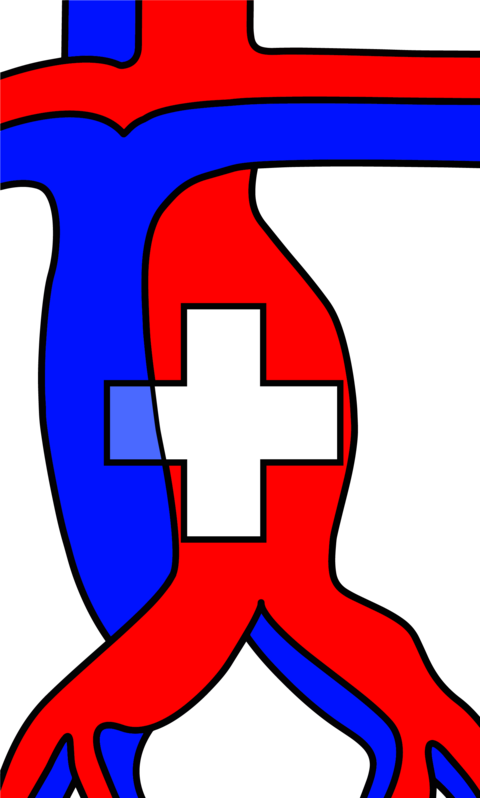Our study presents the postoperative outcomes of patients undergoing laparoscopic cholecystectomy, based on data from the Swiss national registry for quality improvement (AQC). Framed as an exploratory study with an observational cohort design, it aimed to compare the postoperative complications of patients operated by surgeons in training and board-certified surgeons as primary surgeon “teaching” versus “non-teaching”. Between 2009 and 2019, 34’080 consecutive patients were included and matched in a 2:1 ratio according to six covariates we identified as confounders, including age, sex and ASA score. We obtained two comparable cohorts of 7’038 and 14’076 patients in the teaching and non-teaching groups, respectively. The results showed no significant difference in frequency (1.5% versus 1.6%, p=0.6) or severity among patients with postoperative complications (42% versus 40% of Clavien-Dindo ≥ IIIa, p>0.9) of postoperative complications. Teaching was less likely for older patients, sicker individuals (ASA > II), emergencies, and weekend cases.
Interview with Joana Rodrigues Ribeiro (Geneva) und Dr. med. Beat Moeckli (Geneva)
What inspired you to conduct this study?
During my time as a junior resident in general surgery at a Swiss university hospital, I observed that trainees had often limited opportunities to perform common procedures. This made me wonder whether such limited exposure was necessary for patient safety or whether trainees could safely perform these operations. Encouraged by my attending, Dr. Beat Moeckli, who had studied this issue, I used a national database provided by the AQC to investigate postoperative outcomes according to the teaching status of the operating surgeon.
Were there any unexpected findings?
A few findings were unexpected, indeed. First, the mean postoperative length of stay (LOS) of 3.7 days surprised me, as in my clinical experience most elective and uncomplicated emergent cholecystectomies were ambulatory or required only 0–1 night in the ward. Even after analyzing data year by year, no clear trend was observed. This may reflect differences in hospital policies across centers and prolonged LOS caused by the downstream effects of pre-operative waiting times due to operating room inaccessibility, requiring longer postoperative treatments. Interestingly, patients operated on by residents had a statistically shorter postoperative LOS, although the absolute difference was minimal (≈0.3 days) and not clinically meaningful.
The proportion of conversions to laparotomy was also higher than reported in other series (17%). Missing data (39%) for this variable may partially explain this, as uncomplicated non-converted cases may not have been fully captured; nevertheless, conversion still seems to be more frequent than expected in some hospitals.
What is the direct impact on the surgeon's work?
The direct impact on the surgeon’s work is primarily awareness and informed decision-making. While our study is limited by its observational design and exploratory framework, it highlights that patients with similar profiles experience no statistically significant differences in the proportion or severity of postoperative complications when operated on by trainees versus FMH certified surgeons. These findings may encourage the Swiss surgical community to confidently involve trainees in common procedures under appropriate supervision, while recognizing that further confirmatory – ideally randomized – trials are needed.
Additionally, we identified factors that may be less “teaching-friendly”, such as patient age, ASA, urgent setting and weekend days, that could increase complexity. Recognizing these factors can help surgeons adapt supervision and operative planning, optimizing both patient safety and trainee education.
What is your learning point from this project?
This project provided a partial answer to the question, “How does the impact of surgery performed by trainees compare to fully trained surgeons?”. Our analysis suggests no meaningful differences in postoperative complications, highlighting the need for a formal non-inferiority trial to confirm this.
It was also my first experience working with “big data”, which exposed me to challenges such as limited data availability and dependence on externally collected databases. This experience emphasized the value of national databases and the importance of improving data completeness and granularity. For example, future data collection could include residents’ post-graduation year and systematically classify procedural complexity, using tools such as the Nassar scale for cholecystectomies, to enable more nuanced analyses of teaching and outcomes.
Are there any subsequent projects planned?
After completing two years of surgical residency in Geneva, I paused my clinical training to pursue a PhD in Epidemiology, Biostatistics, and Public Health at the University of Zürich. Although my current focus is on my PhD, I am eager to collaborate with surgical colleagues to statistically support the confirmation of the findings suggested by this study. I hope that opportunities for trainee-performed procedures in Switzerland will increase, and if institutional regulations require stronger evidence, a formal confirmatory trial would be the next logical step.










